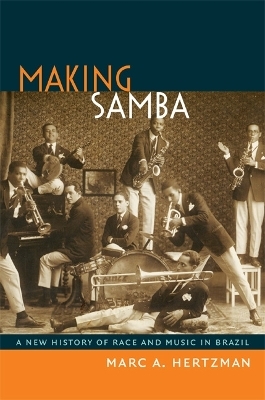
Making Samba
Duke University Press (Verlag)
978-0-8223-5415-4 (ISBN)
Marc A. Hertzman is Assistant Professor of Latin American and Iberian Cultures and Director of the Center for Brazilian Studies at Columbia University.
A Note about Brazilian Terminology, Currency, and Orthography ix
Abbreviations xi
Acknowledgments xiii
Introduction 1
1. Between Fascination and Fear: Musicians' Worlds in Nineteenth-Century Rio de Janeiro 17
2. Beyond the Punishment Paradigm: Popular Entertainment and Social Control after Abolition 31
3. Musicians Outside the Circle: Race, Wealth, and Property in Fred Figner's Music Market 66
4. "Our Music": "Pelo telefone," the Oito Batutas, and the Rise of "Samba" 94
5. Mediators and Competitors: Musicians, Journalists, and the Roda do Samba 116
6. Bodies and Minds: Mapping Africa and Brazil during the Golden Age 146
7. Alliances and Limits: The SBAT and the Rise of the Entertainment Class 169
8. Everywhere and Nowhere: The UBC and the Consolidation of Racial and Gendered Difference 194
9. After the Golden Age: Reinvention and Political Change 227
Conclusion 244
Notes 253
Bibliography 299
Index 335
A photo gallery
| Zusatzinfo | 1 map, 16 figures |
|---|---|
| Verlagsort | North Carolina |
| Sprache | englisch |
| Maße | 156 x 235 mm |
| Gewicht | 685 g |
| Themenwelt | Kunst / Musik / Theater ► Musik ► Musiktheorie / Musiklehre |
| Kunst / Musik / Theater ► Musik ► Pop / Rock | |
| Geisteswissenschaften ► Geschichte ► Regional- / Ländergeschichte | |
| Sozialwissenschaften ► Soziologie | |
| ISBN-10 | 0-8223-5415-2 / 0822354152 |
| ISBN-13 | 978-0-8223-5415-4 / 9780822354154 |
| Zustand | Neuware |
| Haben Sie eine Frage zum Produkt? |
aus dem Bereich


